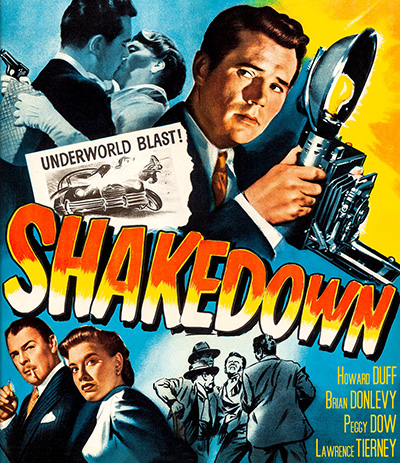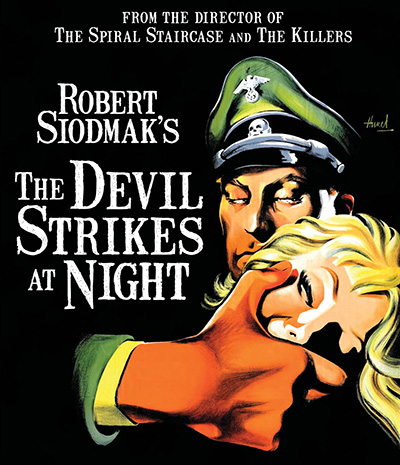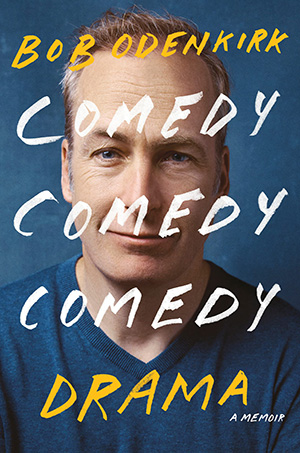Last week I talked about Bobby Darin. Since then, my second favorite pop-music artist of the pre-Beatles era has passed – another Bobby.
Rydell.
Robert Ridarelli has received less acclaim than Darin, and he would have been the first to say he was fine with that. He was a humble man whose great accomplishments came early in life, as was the case with almost all the teen idols of the late ‘50s and early ‘60s. But he deserves better than just having a mythical high school named after him in Grease.
When Barb and I saw him perform with the other two Golden Boys of Bandstand, Frankie Avalon and Fabian – and while Avalon and Fabe were very entertaining – Rydell was the show stopper. For one thing, he was the only Golden Boy whose set was almost entirely his own hits; although the other two are somehow more emblematic of teen idols of the period, only Rydell was a consistent hitmaker. The only song he sang at the performance we saw that was not a chart hit of his was “Mack the Knife” – part of an excellent, obviously heart-felt tribute to Bobby Darin.
Darin was clearly Rydell’s model for moving into material that straddled teen and adult tastes – his “Old Black Magic” was patterned on Darin’s “Bill Bailey,” and Rydell’s biggest, arguably most memorable hit, “Volare,” was his “Mack the Knife.” “Sway” was another Dean Martin hit reimagined (Dino’s version of “Volare” informed Rydell’s) but his more rock-oriented numbers indicate the great “Wild One” and such fun numbers as “Wildwood Days” (which didn’t even make the Golden Boys set we saw) and “Swingin’ School.” His post-Beatles hit, “Forget Him,” is a fine ballad.
I met him twice and had an e-mail exchange with him once.
At the Iowa State Fair in 1981, Barb and I were strolling through the grounds one afternoon when I heard someone singing, “New York, New York.” I told her it sounded like Bobby Rydell and we made our way quickly to a bandshell stage in front of which fairgoers were on benches listening. It was indeed Rydell, and we heard most of a set that mingled standards with hits, including “Swingin’ School,” which I had always loved, though it’s a fairly idiotic song. But it had been in the Dick Clark-starring “Because They’re Young,” a major film event for the junior high kids of my era.
After the show, I tracked the performer to a small trailer – one of those two-wheel jobs, which would have provided him with just enough room to freshen up a little, maybe catch a nap and avoid pests. Well, not this one. I knocked and he came out and was very gracious to both Barb and me, giving me five minutes to gush about how I owned all of his albums. Which I did. Which I do.
We spoke a little bit about Darin and he seemed genuinely moved by my enthusiasm for that other teen idol of his era.
Very softly he said, “Ah, Bobby…Bobby….No one like him.”
Ten years or so later, Barb and I took in that Golden Boys of Bandstand show in Cedar Rapids. It really was a wonderful concert, but Rydell stole it. His “Mack the Knife” brought down the house, and he had more hits of his own to share than Frankie and Fabe put together.
Barb and I hung around the stage door like the wide-eyed fans we were, and all three came out and greeted a small group of fans, and took their time chatting and signing autographs. Rydell claimed to remember meeting us before. Avalon and Fabian were clearly impressed by how beautiful a woman I’d somehow convinced to go around with me.
In 2010 Rydell released a terrific CD, “Then and Now,” which was two albums – a re-visitation of his greatest hits, very nicely done, and a swing album in the Darin/Sinatra vein. I thought it was an outstanding job and wrote Rydell saying so, and got a warm personal reply – clearly not canned, as it responded specifically to my remarks. I dropped him a few notes after that, when he was suffering from health problems – he underwent several transplants (kidney and liver).
I tried, perhaps twenty years ago, to get a contract to do a book on the Bobby’s – Darin, Rydell and Vee. Bobby Vee I also met and he was a wonderful rock entertainer and a warm, lovely guy. My late musical collaborator Paul Thomas got to know him really well.
As for the other famous Bobby of that era, I’m not a big Bobby Vinton fan (don’t dislike him) and have one small connection. At a Vegas show, Vinton asked for a volunteer to duet with him and my father was enlisted. I wasn’t there, but I’m told Vinton was startled by my dad’s trained, commanding voice, and smilingly accused him of being a ringer sent to embarrass him.
The absence of Rydell and Vee from the Rock ‘n’ Roll Hall of Fame is criminal. I feel the same about Pat Boone, for his importance (his cover records opened doors for the original artists, plus for several key years he out-sold Elvis), and for the Association and Vanilla Fudge for obvious reasons.
When Rydell passed away at 79, the Hall of Fame oversight came jarringly to the fore.
John Lennon, by the way, confirmed that the “Yeah, yeah, yeah’s” of “She Loves You” were inspired by Rydell’s use of them in several songs (“We Got Love,” which “She Loves You” started out as an “answer” song to the Rydell hit).
Anyway, here’s a taste of two of Bobby Rydell’s hits performed years later.
And from the same show, here’s a look at his Darin/”Mack the Knife” Tribute.
I’d like to call your attention to two excellent films noir that had somehow slipped under my radar.

Shakedown (1950) stars Howard Duff, whose big success on radio as Sam Spade led many in Hollywood to think he was a natural for big league stardom. That never quite happened, though he had success as a B-movie star and wound up on TV starring on Felony Squad (earlier, he and his then-wife Ida Lupino had a somewhat successful sitcom, Mr. Adams and Eve). His career was likely compromised by McCarthy-era accusations, but Shakedown reveals him as an interesting screen presence whose rather putty-like features (while handsome) suggest an unspoken moral laxity that really power this particular noir.
Directed by Joe Pevney – whose other noirs are pretty middling and whose claim to fame is helming episodes of the original Star Trek – Shakedown charts the rise and abrupt fall of a newspaper photographer who climbs to the top over anybody in his way and who blithely blackmails dangerous gangsters until (of course) it all catches up with him. The pace is fairly breakneck and the cast is amazing – Brian Donlevy and (yikes) Lawrence Tierney are among those Duff betrays or blackmails. Noir veteran Peggy Dow and former screen Tarzan Bruce Bennett are cheerfully trampled along the way. With a script co-written by Martin Goldsmith, who wrote both the novel and the film Detour, you know what you’re in for.

The Devil Strikes at Night is a 1957 German film directed and written by noir master Robert Siodmak, after his long stay in Hollywood (Criss Cross, The Killers). It’s an anti-Nazi film made in Germany, a little more than ten years after war’s end. If that weren’t enough, it has a remarkably rule-breaking structure, cutting between a wounded war veteran who returns to his job on the homicide squad and the crimes of a serial killer who is presented with startling sympathy. On top of that, the film seems to wrap up at the one hour mark with a half hour remaining. That it continues on in its bleak, uncompromising way – including a “happy” ending that has the protagonist heading off to the front to likely die – is pleasingly head shaking. By the way, it turns out the SS were a bunch of crumbs.
Both Shakedown and The Devil Strikes at Night are available from Kino for you other dinosaurs who still like physical media.

People are always asking me what I’m reading.
Well, I just finished the excellent Comedy! Comedy! Comedy! Drama!, the autobiography of Bob Odenkirk. The triple comedies of the title should indicate to potential readers (perhaps even warn them) that there’s more here about Odenkirk’s many years as one of our best comedy performers and writers than on Breaking Bad and Better Call Saul. Both of the latter get paid attention, each about a chapter’s worth. But Mr. Show gets more space, probably because Odenkirk was a writer/creator (with David Cross of course) on it, whereas he’s “just” an actor on the great Breaking Bad and Better Call Saul.
To put this in perspective, I said to Barb, “I love this book! You wouldn’t like it.” Keep in mind we’ve been married over fifty years, so I have reason to know her fairly well.
But Odenkirk conveys his own voice in the book – you hear him speak, you crawl around in his brain, you understand how he thinks and how he makes career choices, about which he frequently, frankly criticizes himself.
The book also has some strange resonances for me. Odenkirk lived next door to Dick Locher, my second Dick Tracy artist, who had been his Scoutmaster. Odenkirk’s best friend was John Locher, he was his father Dick’s artistic assistant who I worked with and liked very much (he tragically died very young, while he was preparing to take over the strip from his dad).
Also, Odenkirk knew Del Close – even met him in a bookstore in Chicago (as did I, when Del came to a Nathan Heller signing). Some here may recall that I directed Del in Mommy’s Day. Odenkirk invokes Del many times in his book.
My son Nate (then living in Chicago) met Odenkirk at a Second City event; Bob signed a Mr. Show DVD to me. We have never met, but I feel we have.
Here’s an article on the making of The Expert, the movie I wrote back in 1994. I make some comments clarifying issues made in the piece.
Remember, The Menace by Spillane and Collins will be available later this month, and The Shrinking Island by Spillane (introduced by Collins) is available now.
M.A.C.
Tags: Mommy's Day, Passings, The Expert
The Oderkirk/Locher connection just made my head spin around.
I didn’t see any mention of my favorite Teen Idol Johnny Rivers. I saw him at a fair a few years ago and his rendition of “Poor Side of Town” brought me to tears. Thanks for your memories and the links to music I love.
What’s crazy here to me is the 1986 footage is essentially Bobby Rydell performing as a nostalgia act two decades removed from success, though he was only in his mid-40s. His voice is in fine form, yet it is so far from the popular style of the moment (Mr. Mister, Peter Gabriel, Billy Ocean, etc.) It really illustrates how quickly popular music evolved over those twenty-plus years.
Rest in Musical Heaven, sir, where you are always in the hit parade.